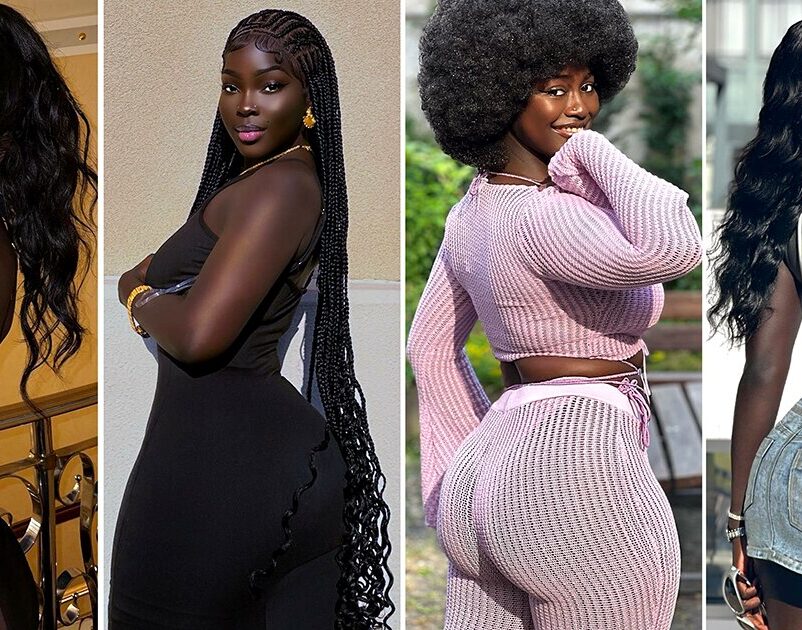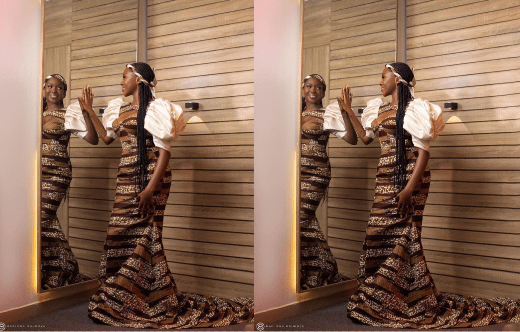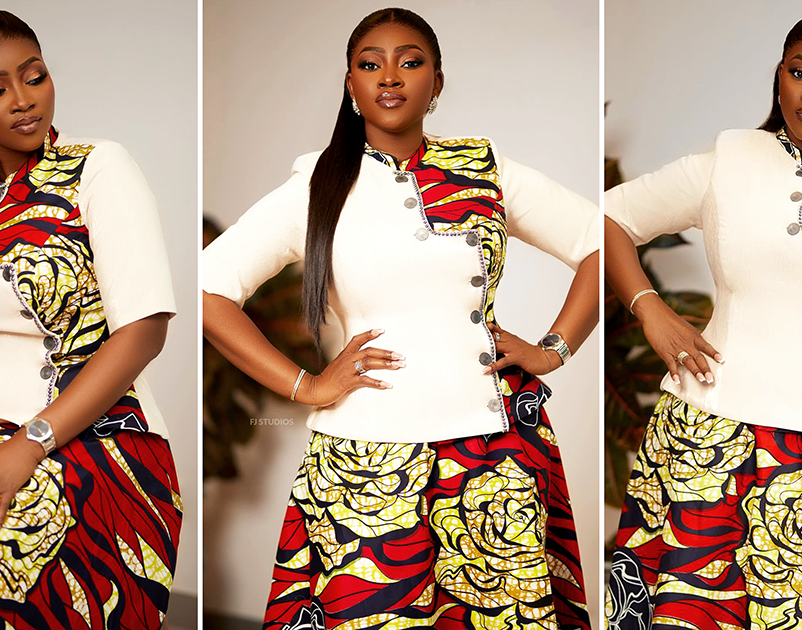
If You Like This Article Kindly Give Us A Share!
The Fight Against The Anti Dark Skinned Norm
Once upon a time in the world of mainstream media, black women were the most neglected in all areas of visual promotion. From commercials to fashion, black women were shunned, and even when exposure occurred, it primarily focused on light-skinned black women, especially those lacking African features.
Many people challenged this narrative in the early 2010s, whilst platforms like Vogue Magazine will go live on TV and consistently use the excuse that black women don’t sell; they are considered unattractive and not appealing. With the rise of social media, platforms like ours made it our mission (with receipts) to push and promote dark-skinned beauty and over turn this lie and myth of the mainstream magazines.
A Change Did Come
Being the first African fashion and beauty-oriented medium to reach 1 million views, FashionGHANA.com embraced the challenge and influenced other platforms to promote not only African fashion, but also dark-skinned women from around the world until it became a prideful attribute and a trend.
Today, we witness the rise of dark-skinned women on social media, garnering hundreds of thousands of likes. Dark-skinned models now take center stage on various runway shows, whilst establishments like Vogue magazine retract their previous stance, regularly featuring dark-skinned models in editorials and on covers with a miserable apology to match.
Nigerian Photographer Rejects Anna Wintour’s Apology For Vogue’s Racists Reality #VogueChallenge
Prior to social media, it wasn’t that black beauty didn’t sell; there was an organized effort to dampen the appreciation of dark-skinned women globally for economic and self-esteem purposes—not only by skin tone but also an attack on hair. With numerous races once aspiring to be like African women in dance, hair, talk, and behavior, it is only right that there would be political efforts to undo this, which has been the case until social media broke this reality.
The Forgotten Change
Now in today’s world, entities like ours and most of those that fought the battles can bear the emotional fruits of our labor, seeing dark-skinned women rise to fame and garner global appreciation. Today, Africans face less of the skin-bleaching epidemic that plagued us prior to the early 2010s, in fact it is no longer much of a social discussion.
But the question today is, how is the rise of dark-skinned beauty faring for African people as a whole? It seems that without a strong historical perspective, most of the dark-skinned beauties amassing success are clueless about life before the battle of pushing dark-skinned beauty on social media. After all, most of these mid and early 20s girls would only have been around the age of 13 and younger back in those times. What would they know about how dark skinned tones were once damned.
The bottom line is that as the young dark-skinned ladies of today enjoy the fruits of the heavy challenge the African society put up against the complex beauty industry, they have no clue about what opened the doors for them, which might explain why they have turned their backs on black business as a whole.
The Admiration Of Dark Skinned Beauty Is Not Working For Us
Finding a popular dark-skinned woman on any social platform using their viral beauty to support black-owned business is like finding a needle in a haystack, despite the fact most of their appreciation and consistent promotion come from black-owned social media platforms (simply check their instagram tag columns).
Most of these ladies benefit from the extreme support they get from the black community but have absolutely no benefit to the community. Their ability to turn black owned brands into mega business is high, but unfortunately their pages is plagued with Western fashion companies, hair weaves, and showing off the Western and Arab countries they visit during their anonymous dates. It is as if they have turned their backs on everything that fought for them and have become a primary vehicle for Europeans to access the African markets through their glossy beauty. In fact as far as social media goes, dark skinned influencers are the biggest tools in promoting western fashion brands and giving black brands competition in black communities.
There are a few dark skinned beauties whom have rose to fame due to their wonderful complexion and do continue to support African brands. A few of them can be spotted below. Ayen Monica, Angela, Eniola, Kristline are such influencers.
But the main question is why is it only such a few?
Could It Be Black Brands May Not Be Able To Afford Them
Maybe it’s not their fault; perhaps after tasting the money they receive from FashionNova, the offers from African-based and other black-owned brands are just not enticing enough. Or maybe black brands are not reaching out to them as much.
The gorgeous Oumy Diop hailing from Senegal has tonnes of stunning images but not one that represents African culture. And then there are influencers like Abby whose page is flooded with nothing but western brands and business.
Despite hosting her Ghanaian flag proudly in her bio, her instagram is nothing but a look book for every mainstream foreign online brand such as fashionnova, missyempire, etc. and not one hint of Ghanaian fashion, not even a print bracelet or her own Ghanaian hair.
But Abby is joined by many more dark skinned influencers who have made their way to the top by dark skinned admiration and have dedicated themselves to promoting western brands. Influencers such as Monica Atong, Mariam Toure, Nyla Leuuth and more have definitely used their popularity and beauty in the direction of promoting western brands only.
Africans Keep Creating Stars With No Accountability
Through the process of featuring and continuing to promote many of these stunning ladies on our platform, we have also learned their communication with African platforms is not impressive. If lucky they might greet back, outside of that most don’t follow up, probably not as they would if we were European-owned medium.
After being featured on African media platforms, a few might share, but also many don’t, especially the ones who go to the extent of sticking links to Western blogs in their bios. A common problem with black people as a whole, we have witnessed for many years celebrities created in the hip hop community where they only make music that is detrimental to the people. Or the rise of the afrobeats artists, whom when they go international they become too expensive for their own nations. We have a tendency to give clout and make figures popular within our community without holding them accountable.
They Don’t Owe Us Nothing, But….
In conclusion, no dark skinned influencer or popular dark skinned lady owes any black owned business or black community anything, but going by that logic, if their beauty is nothing but a vehicle to promote everything white, then maybe the black community or social media users needs to learn to withdraw their random support in cheering these ladies in the name of challenging steriotypes.
It is our likes, comments, and shares that give them the clout and numbers to attract western brands. And if they refuse to have a fair amount of black owned brands on their pages then it makes no sense for them to continue to receive admiration from the community.
Read More Like This On
UPCOMING TOP EVENTS!
AFRICAS BIGGEST FASHION WEEK IS HERE!

To Submit stories Email: [email protected] or HashTag #FashionGHANA
Source link














